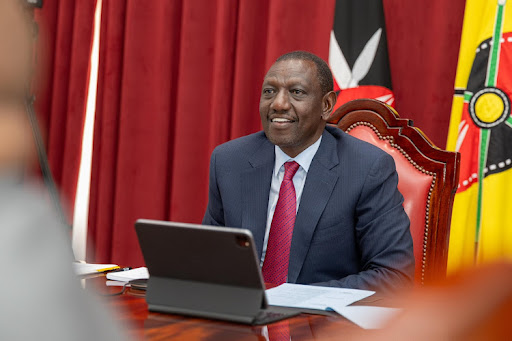

Harmonisation of international laws on combating money laundering and terrorism will be key in helping Kenya in its fight against transnational organised crime, President William Ruto has said.
While describing it as a growing and complex threat to global security, President Ruto warned that criminal networks—ranging from terrorist groups to human traffickers and money launderers—are becoming increasingly sophisticated.
He noted that they are exploiting international borders, digital platforms, and financial systems to evade justice.
Speaking during the closing ceremony of the 23rd Commonwealth Heads of Prosecuting Agencies Conference in Mombasa on Wednesday, he urged member states to harmonise legal frameworks and prioritise asset recovery efforts to cut off criminal enterprises from their illicit gains.
“Crimes such as terrorism, money laundering, and human trafficking pose serious and escalating risks. Their perpetrators operate through shadowy transnational networks, often facilitated by social media, encrypted communications, and even cryptocurrency,” said Ruto.
Citing Kenya’s own battle against terrorism, he said 24 terrorism-related cases are currently active in Kenyan courts, alongside 720 cases involving human trafficking and 30 money laundering prosecutions recorded between 2021 and 2024.
This comes at a time that the European Commission has added Kenya to the list of countries with high risk for money laundering and terror financing.
In a statement, the EU noted that the move is important in protecting its financial systems.
“The European Commission has updated its list of high-risk jurisdictions presenting strategic deficiencies in their national anti-money laundering and countering the financing of terrorism (AML/CFT) regimes.” Reads the statement
“EU entities covered by the AML framework are required to apply enhanced vigilance in transactions involving these countries. This is important to protect the EU financial system.”
The Financial Action Task Force (FATF), a France based organisation reviews efforts by more than 200 countries and jurisdictions to prevent money laundering and terrorism financing, compiles a "grey list" of nations that are subject to increased monitoring of financial transactions.
Kenya now joins Algeria, Angola, Côte d'Ivoire, Kenya, Laos, Lebanon, Monaco, Namibia, Nepal, and Venezuela. Those that have been scrapped from the list include Barbados, Gibraltar, Jamaica, Panama, the Philippines, Senegal, Uganda, and the United Arab Emirates.
While pointing out that financing for the Dusit attack was traced to banks in South Africa, Kenya, and Somalia, the president maintained that they cant be handled by a single country.
“These cases demonstrate the scale of the threat we face and the urgency of sustained and coordinated action. No country can tackle these crimes alone,” he stated.
“The harmonisation of laws, mutual legal assistance, joint investigations, and extradition are vital tools in dismantling these networks. Tracing, confiscating, and forfeiting criminal proceeds must be front and centre,” said Ruto.
He stressed that Kenya is committed to strengthening institutions, revamping anti-money laundering laws, and ensuring justice is pursued within a human rights-based framework.
Kenya has already signed global partnerships through memoranda of understanding with counterparts in countries such as Azerbaijan, Morocco, Qatar, and Saudi Arabia.
The conference brought together senior prosecutors from across the Commonwealth to discuss strategies for addressing the evolving landscape of transnational crime.















